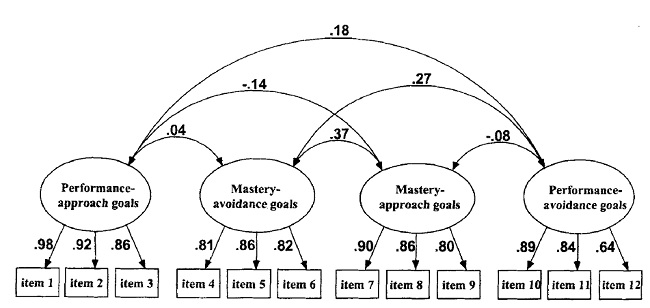The Importance, Benefits, and Value of Goal Setting
 How often do you set goals? How often do you revisit your list?
How often do you set goals? How often do you revisit your list?
We all know that setting goals is important, but we often don’t realize how important they are as we continue to move through life.
Goal setting does not have to be boring. There are many benefits and advantages to having a set of goals to work towards.
Setting goals helps trigger new behaviors, helps guides your focus and helps you sustain that momentum in life.
Goals also help align your focus and promote a sense of self-mastery. In the end, you can’t manage what you don’t measure and you can’t improve upon something that you don’t properly manage. Setting goals can help you do all of that and more.
In this article, we will review the importance and value of goal setting as well as the many benefits.
We will also look at how goal setting can lead to greater success and performance. Setting goals not only motivates us, but can also improve our mental health and our level of personal and professional success.
Before you continue, we thought you might like to download our three Goal Achievement Exercises for free. These detailed, science-based exercises will help you or your clients create actionable goals and master techniques to create lasting behavior change.
This Article Contains:
- The Importance and Value of Goal Setting
- Why Set Goals in Life?
- What are the Benefits of Goal Setting?
- 5 Proven Ways Goal Setting is Effective
- How Can Goal Setting Improve Performance?
- How Goal Setting Motivates Individuals
- Why is Goal Setting Important for Students?
- A Look at the Importance of Goal Setting in Mental Health
- The Importance of Goal Setting in Business and Organizations
- 10 Quotes on the Value and Importance of Setting Goals
- A Take-Home Message
- References
The Importance and Value of Goal Setting
Up until 2001, goals were divided into three types or groups (Elliot & McGregor, 2001):
- Mastery goals
- Performance-approach goals
- Performance-avoidance goals
A mastery goal is a goal someone sets to accomplish or master something such as “I will score higher in this event next time.”
A performance-approach goal is a goal where someone tries to do better than his or her peers. This type of goal could be a goal to look better by losing 5 pounds or getting a better performance review.
A performance-avoidance goal is a goal where someone tries to avoid doing worse than their peers such as a goal to avoid negative feedback.
Research done by Elliot and McGregor in 2001 changed these assumptions. Until this study was published, it was assumed that mastery goals were the best and performance-approach goals were at times good, and other times bad. Performance-avoidance goals were deemed the worst, and, in fact, bad.
The implied assumption, as a result of this, was that there were no bad mastery goals or mastery-avoidance goals.
Elliot and McGregor’s study challenged those assumptions by proving that master-avoidance goals do exist and proving that each type of goal can, in fact, be useful depending on the circumstances.
Elliot and McGregor’s research utilized a 2 x 2 achievement goal framework comprised of:
- Mastery-approach
- Mastery-avoidance
- Performance-approach
- Performance-avoidance
These variables were tested in 3 studies. In experiments one and two, explanatory factor analysis was used to break down 12 goal-setting questions into 4 factors, as seen in the diagram below.

Confirmatory factor analysis was used at a later date to show that mastery-avoidance and mastery-approach fit the data better than mastery alone.
The questions for these studies were created from a series of pilot studies and prior questionnaires. Once all of the questions were combined, a factor-analysis was utilized to confirm that each set of questions expressed different goal-setting components.
Results of these studies showed that those with a high motive to achieve were much more likely to use approach goals. Those with a high motive to avoid failure, on the other hand, were much more likely to use avoidance goals.
The third experiment examined the same four achievement goal variables and revealed that those more likely to use performance-approach goals were more likely to have higher exam scores, while those who used performance-avoidance goals were more likely to have lower exam scores.
According to the research, motivation in achievement settings is complex, and achievement goals are but one of several types of operative variables to be considered.
Achievement goal regulation, or the actual pursuit of the goal, implicates both the achievement goal itself as well as some other typically higher order factors such as motivationally relevant variables, according to the research done by Elliot and McGregor.
As we can clearly see, the research on goal setting is quite robust.
Why Set Goals in Life?
 The truth is that some goals are achieved while others are not and it’s important to understand why.
The truth is that some goals are achieved while others are not and it’s important to understand why.
Mark Murphy the founder and CEO of LeadershipIQ.com and author of the book “Hard Goals: The Secret to Getting from Where You Are to Where You Want to Be,” has gone through years of research in science and how the brain works and how we are wired as a human being as it pertains to goal setting.
Murphy’s book “Hard Goals: The Secret to Getting from Where You Are to Where You Want to Be” combines the latest research in psychology and brain science on goal-setting as well as the law of attraction to help fine-tune the process.
A HARD goal is an achieved goal, according to Murphy (2010). Murphy tells us to put our present cost into the future and our future benefit into the present.
What this really means is don’t put off until tomorrow what you could do today. We tend to value things in the present moment much more than we value things in the future.
Setting goals is a process that changes over time. The goals you set in your twenties will most likely be very different from the goals you set in your forties.
Whatever your age doesn’t really matter in the end, as long as you continually revisit your life goals and work to update them.
What are the Benefits of Goal Setting?
Edward Locke and Gary Latham (1990) are leaders in goal-setting theory. According to their research, goals not only affect behavior as well as job performance, but they also help mobilize energy which leads to a higher effort overall. Higher effort leads to an increase in persistent effort.
Goals help motivate us to develop strategies that will enable us to perform at the required goal level.
Accomplishing the goal can either lead to satisfaction and further motivation or frustration and lower motivation if the goal is not accomplished.
Goal setting can be a very powerful technique, under the right conditions according to the research (Locke & Latham, 1991).
According to Lunenburg (2011), the motivational impact of goals may, in fact, be affected by moderators such as self-efficacy and ability as well.
5 Proven Ways Goal Setting is Effective
 Locke and Latham’s research have shown us that goal setting is indeed very effective.
Locke and Latham’s research have shown us that goal setting is indeed very effective.
In the 1968 article “Toward a Theory of Task Motivation” Locke showed us that clear goals and appropriate feedback served as a good motivator for employees (Locke, 1968).
Locke’s research also revealed that working toward a goal is a major source of motivation, which, in turn, improves performance.
Locke reviewed over a decade of research of laboratory and field studies on the effects of goal setting and performance. Locke found that over 90% of the time, goals that were specific and challenging, but not overly challenging, led to higher performance when compared to easy goals or goals that were too generic such as a goal to do your best.
Dr. Gary Latham also studied the effects of goal setting in the workplace. Latham’s results supported Locke’s findings and showed there is indeed a link that is inseparable between goal setting and workplace performance.
Locke and Latham published work together in 1990 with their work “A Theory of Goal Setting & Task Performance” stressing the importance of setting goals that were both specific and difficult.
Locke and Latham also stated that there are five goal-setting principles that can help improve your chances of success.
- Clarity
- Challenge
- Commitment
- Feedback
- Task Complexity
Clarity is important when it comes to goals. Setting goals that are clear and specific eliminate the confusion that occurs when a goal is set in a more generic manner.
Challenging goals stretch your mind and cause you to think bigger. This helps you accomplish more. Each success you achieve helps you build a winning mindset.
Commitment is also important. If you don’t commit to your goal with everything you have it is less likely you will achieve it.
Feedback helps you know what you are doing right and how you are doing. This allows you to adjust your expectations and your plan of action going forward.
Task Complexity is the final factor. It’s important to set goals that are aligned with the goal’s complexity.
Why the secret to success is setting the right goals – John Doerr
How Can Goal Setting Improve Performance?
Goal setting and task performance were studied by Locke and Latham (1991). Goal setting theory is based upon the simplest of introspective observations, specifically, that conscious human behavior is purposeful.
This behavior is regulated by one’s goals. The directedness of those goals characterizes the actions of all living organisms including things like plants.
Goal-setting theory, according to the research, states that the simplest and most direct motivational explanation on why some people perform better than others is because they have different performance goals.
Two attributes have been studied in relation to performance:
- Content
- Intensity
In regard to content, the two aspects that have been focused on include specificity and difficulty. Goal content can range from vague to very specific as well as difficult or not as difficult.
Difficulty depends upon the relationship someone has to the task. The same task or goal can be easy for one person, and more challenging for the next, so it’s all relative.
On average though the higher the absolute level is of a goal, the more difficult it is to achieve. According to research, there have been more than 400 studies that have examined the relationship of goal attributes to task performance.
According to Locke and Latham (1991), it has been consistently found that performance is a linear function of a goal’s difficulty.
Given an adequate level of ability and commitment, the harder a goal, the higher the performance.
What the researchers discovered was that people normally adjust their level of effort to the difficulty of the goal. As a result, they try harder for difficult goals when compared to easier goals.
The principle of goal-directed action is not restricted to conscious action, according to the research.
Goal-directed action is defined by three attributes, according to Lock & Latham.
- Self-generation
- Value-significance
- Goal-causation
Self-generation refers to the source of energy integral to the organism. Value-significance refers to the idea that the actions not only make it possible but necessary to the organism’s survival. Goal-causation means the resulting action is caused by a goal.
While we can see that all living organisms experience some kind of goal-related action, humans are the only organisms that possess a higher form of consciousness, at least according to what we know at this point in time.
When humans take purposeful action, they set goals in order to achieve them.
How Goal Setting Motivates Individuals
 Research tells us that goal setting is important on both an individual and a group basis.
Research tells us that goal setting is important on both an individual and a group basis.
Locke and Latham have also shown us that there is an important relationship between goals and performance.
Locke and Latham’s research supports the idea that the most effective performance seems to be the result of goals being both specific and challenging. When goals are used to evaluate performance and linked to feedback on results, they create a sense of commitment and acceptance.
The researchers also found that the motivational impact of goals may be affected by ability and self-efficacy, or one’s belief that they can achieve something.
It was also found that deadlines helped improve the effectiveness of a goal and a learning goal orientation leads to higher performance when compared to a performance goal orientation.
Why is Goal Setting Important for Students?
Research done by Moeller, Theiler, and Wu (2012) examined the relationship between goal setting and student achievement at the classroom level.
This research examined a 5-year quasi-experimental study, which looked at goal setting and student achievement in the high school Spanish language classroom.
A tool known as LinguaFolio was used, and introduced into 23 high schools with a total of 1,273 students.
The study portfolio focused on student goal setting, self-assessment and a collection of evidence of language achievement.
Researchers used a hierarchical linear model, and then analyzed the relationship between goal setting and student achievement. This research was done at both the individual student and teacher levels.
A correlational analysis of the goal-setting process as well as language proficiency scores revealed a statistically significant relationship between the process of setting goals and language achievement (p < .01).
The research also looked at the importance of autonomy or one’s ability to take responsibility for their learning. Autonomy is a long-term aim of education, according to the study as well as a key factor in learning a language successfully.
There has been a paradigm shift in language education from teacher to student-centered learning, which makes the idea of autonomy even more important.
Goal setting in language learning is commonly regarded as one of the strategies that encourage a student’s sense of autonomy (Moeller, Theiler & Wu, 2012)
The results of the study revealed that there was a consistent increase over time in the main goal, plan of action and reflection scores of high school Spanish learners.
This trend held true for all levels except for the progression from third to fourth year Spanish for action plan writing and goal setting. The greatest improvement in goal setting occurred between the second and third levels of Spanish.
A Look at the Importance of Goal Setting in Mental Health
 Goal setting is also an important part of mental health.
Goal setting is also an important part of mental health.
In one study, that looked at goal setting and wellbeing, people participated in three short one-hour sessions where they set goals.
The researchers compared those who set goals to a control group, that didn’t complete the goal-setting exercise. The results showed a causal relationship between goal setting and subjective wellbeing.
Weinberger, Mateo, and Sirey (2009) also looked at perceived barriers to mental health care and goal setting amongst depressed, community-dwelling older adults.
Forty-seven participants completed the study, which examined various barriers to mental health and goal setting. These barriers include:
- Psychological barriers such as social attitudes, beliefs about depression and stigmas.
- Logistical barriers such as transportation and availability of services.
- Illness-related barriers that are either modifiable or not such as depression severity, comorbid anxiety, cognitive status, etc.
For individuals who perceive a large number of barriers to be overcome, a mental health referral can seem burdensome as opposed to helpful.
Defining a personal goal for treatment may be something that is helpful and even something that can increase the relevance of seeking help and improving access to care according to the study.
Goal setting has been shown to help improve the outcome in treatment, amongst studies done in adults with depression. (Weinberger, Mateo, & Sirey, 2009)
The process of goal setting has even become a major focus in several of the current psychotherapies used to treat depression. Some of the therapies that have used goal setting include:
- Interpersonal Psychotherapy (IPT)
- Cognitive and Cognitive Behavioral Therapy (CT, CBT)
- Problem-Solving Therapy (PST)
Participants who set goals, according to the study, were more likely to accept a mental health referral. Goal setting seems to be a necessary and good first step when it comes to helping a depressed older adult take control of their wellbeing.
The Importance of Goal Setting in Business and Organizations
 Setting goals is vitally important for everyone, especially those in the business world.
Setting goals is vitally important for everyone, especially those in the business world.
Most of us have been taught from a young age that setting goals can help us accomplish more and get better organized.
Goals help motivate us and help us organize our thoughts. Throughout evolutionary psychology, however, a conscious activity like goal setting has often been downplayed.
Psychoanalysis put the focus on the unconscious part of the mind, while cognitive behaviorists argue that external factors are of greater importance.
In 1968, Edward A. Locke formally developed something he called goal-setting theory, as an alternative to all of this.
Goal-setting theory helps us understand that setting goals are a conscious process and a very effective and efficient means when it comes to increasing productivity and motivation, especially in the workplace.
According to Gary P. Latham, the former President of the Canadian Psychological Association, the underlying premise of goal-setting theory is that our conscious goals affect what we achieve. Our goals are the object or the aim of our action.
This viewpoint is not aligned with the traditional cognitive behaviorism, which looks at human behavior as something that is conducted by external stimuli.
This view tells us that just like a mechanic works on a car, other people often work on our brains, without us even realizing it, and this, in turn, determines how we behave.
Goal setting theory goes beyond this assumption, telling us that our internal cognitive functions are equally important, if not more, when determining our behavior.
In order for our conscious cognition to be effective, we must direct and orient our behavior toward the world. That is the real purpose of a goal.
According to Locke and Latham, there is an important relationship between goals and performance.
Research supports the prediction that the most effective performance often results when goals are both specific and challenging in nature.
A learning goal orientation often leads to higher performance when compared to a performance goal orientation, according to the research.
Deadlines also improve the effectiveness of a goal. Goals have a pervasive influence on both employee behaviors and performance in organizations and management practice according to Locke and Latham (2002).
According to the research, nearly every modern organization has some type of psychological goal setting program in its operation.
Programs like management by objectives, (MBO), high-performance work practices (HPWP) and management information systems (MIS) all use benchmarking to stretch targets and plan strategically, all of which involve goal setting to some extent.
Fred C. Lunenburg, a professor at Sam Houston State University, summarized these points in the International Journal of Management, Business, and Administration journal article “Goal-Setting Theory of Motivation” (Lunenburg, 2011).
Specific: Specificity tells us that in order for a goal to be successful, it must also be specific. Goals such as I will do better next time are much too vague and general to motivate us.
Something more specific would be to state: I will spend at least 2 hours a day this week in order to finish the report by the deadline. This goal motivates us into action and holds us accountable.
Difficult but still attainable: Goals must, of course, be attainable, but they shouldn’t be too easy. Goals that are too simple may even cause us to give up. Goals should be challenging enough to motivate us without causing us undue stress.
Process of Acceptance: If we are continually given goals by other people, and we don’t truly accept them, we will most likely continue to fail. Accepting a goal and owning a goal is the key to success.
One way to do this on an organizational level is to bring team members together to discuss and set goals.
Feedback and evaluation: When a goal is accomplished, it makes us feel good. It gives us a sense of satisfaction. If we don’t get any feedback, this sense of pleasure will quickly go away and the accomplishment may even be meaningless.
In the workplace, continuous feedback helps give us a sense that our work and contributions matter. This goes beyond measuring a single goal.
When goals are used for performance evaluation, they are often much more effective.
Learning beyond our performance: While goals can be used as a means by which to give us feedback and evaluate our performance, the real beauty of goal setting is the fact that it helps us learn something new.
When we learn something new, we develop new skills and this helps us move up in the workplace.
Learning-oriented goals can also be very helpful when it comes to helping us discover life-meaning which can help increase productivity.
Performance-oriented goals, on the other hand, force an employee to prove what he or she can or cannot do, which is often counterproductive.
These types of goals are also less likely to produce a sense of meaning and pleasure. If we lack that sense of satisfaction, when it comes to setting and achieving a goal, we are less likely to learn and grow and explore.
Group goals: Setting group goals is also vitally important for companies. Just as individuals have goals, so too must groups and teams, and even committees. Group goals help bring people together and allow them to develop and work on the same goals.
This helps create a sense of community, as well as a deeper sense of meaning, and a greater feeling of belonging and satisfaction.
10 Quotes on the Value and Importance of Setting Goals
A goal properly set is halfway reached.
Zig Ziglar
Everybody has their own Mount Everest they were put on this earth to climb.
Seth Godin
You cannot change your destination overnight, but you can change your direction overnight.
Jim Rohn
It’s better to be at the bottom of the ladder you want to climb than at the top of the one you don’t.
Stephen Kellogg
If you don’t design your own life plan, chances are you’ll fall into someone else’s plan. And guess what they have planned for you? Not much.
Jim Rohn
All who have accomplished great things have had a great aim, have fixed their gaze on a goal which was high, one which sometimes seemed impossible.
Orison Swett Marden
The greater danger for most of us isn’t that our aim is too high and miss it, but that it is too low and we reach it.
Michelangelo
Give me a stock clerk with a goal and I’ll give you a man who will make history. Give me a man with no goals and I’ll give you a stock clerk.
J.C. Penney
Intention without action is an insult to those who expect the best from you.
Andy Andrews
This one step – choosing a goal and sticking to it – changes everything.
Scott Reed
A Take-Home Message
Setting goals can help us move forward in life. Goals give us a roadmap to follow. Goals are a great way to hold ourselves accountable, even if we fail. Setting goals and working to achieving them helps us define what we truly want in life.
Setting goals also helps us prioritize things. If we choose to simply wander through life, without a goal or a plan, that’s certainly our choice. However, setting goals can help us live the life we truly want to live.
Having said that, we don’t have to live every single moment of our lives planned out because we all need those days when we have nothing to accomplish.
However, those who have clearly defined goals might just enjoy their downtime even more than those who don’t set goals.
For more insightful reading, check out our selection of goal-setting books.
We hope you enjoyed reading this article. Don’t forget to download our three Goal Achievement Exercises for free.
- Elliot, A. J., & McGregor, H. A. (2001). A 2 x 2 achievement goal framework. Journal of Personality and Social Psychology, 80(3), 501-519.
- Locke, E. A. (1968). Toward a theory of task motivation and incentives. Organizational Behavior and Human Performance, 3(2), 157-189.
- Locke, E. A., & Latham, G. P. (1991). A theory of goal setting & task performance. The Academy of Management Review, 16(2), 212-247.
- Locke, E. A., & Latham, G. P. (2002). Building a practically useful theory of goal setting and task motivation. American Psychologist, 57(9), 705-717.
- Lunenburg, F. C. (2011). Goal-setting theory of motivation. International Journal of Management, Business, and Administration, 15(1), 1-6.
- Moeller, A. J., Theiler, J. M., & Wu, C. (2012). Goal setting and student achievement: A longitudinal study. The Modern Language Journal, 96(2), 153-169.
- Murphy, M. (2010). HARD goals: The secret to getting from where you are to where you want to be. New York, NY: McGraw Hill.
- Weinberger, M. I., Mateo, C., & Sirey, J. A. (2009). Perceived barriers to mental health care and goal setting among depressed, community-dwelling older adults. Patient Preference and Adherence, 3, 145-149.
Let us know your thoughts
Read other articles by their category
- Body & Brain (49)
- Coaching & Application (57)
- Compassion (26)
- Counseling (51)
- Emotional Intelligence (24)
- Gratitude (18)
- Grief & Bereavement (21)
- Happiness & SWB (40)
- Meaning & Values (26)
- Meditation (20)
- Mindfulness (45)
- Motivation & Goals (45)
- Optimism & Mindset (34)
- Positive CBT (28)
- Positive Communication (20)
- Positive Education (47)
- Positive Emotions (32)
- Positive Leadership (18)
- Positive Parenting (4)
- Positive Psychology (33)
- Positive Workplace (37)
- Productivity (16)
- Relationships (46)
- Resilience & Coping (36)
- Self Awareness (21)
- Self Esteem (38)
- Strengths & Virtues (31)
- Stress & Burnout Prevention (34)
- Theory & Books (46)
- Therapy Exercises (37)
- Types of Therapy (64)





What our readers think
I really love how the lesson teaches us how to set goals more often